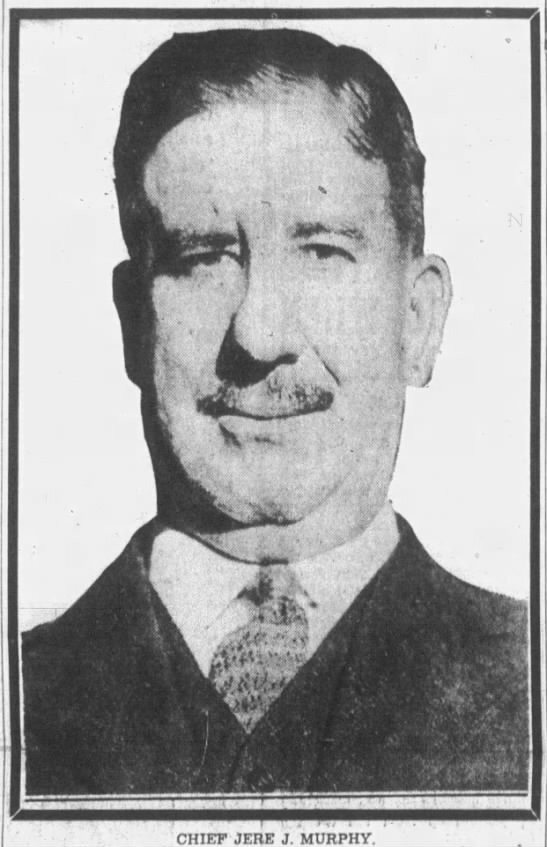Butte, America’s Story Episode 297 - Jere Murphy
Welcome to Butte, America’s Story. I’m your host, Dick Gibson.
Butte’s legendary chief of police, Jeremiah J. Murphy, died in the line of duty September 20, 1935. He had responded from the police office in the City Hall on Broadway street to a disturbance call at the Montana Power Company office at Granite and Main, just a block and a half away.
Jere got into a struggle with the armed man who was threatening Power Company employees. He slipped and fell and cracked his skull on the marble stairway, and died soon after. It was a shock to the community that had known Jere Murphy as a policeman for 42 years, and as chief of police for 25.
He was born in Kilkenny Ireland in either 1866 or 1872, the fourth of 19 children. He came to New York at age 11, and after some apprenticeships and schooling went to Pueblo Colorado to work in a steel mill and start his first law job, as a sheriff’s deputy.
In Anaconda by 1885, Murphy managed the Warm Springs Hotel and worked at Marcus Daly’s smelter, but he moved to Butte in 1889. He knocked around a few years, working among other jobs as a guard at Marcus Daly’s racetrack where he cleaned out the touts who tried to fix races. In 1893 he was appointed to the Butte Police Force.
In those days police officers served at the pleasure of mayors, so Murphy had several stints away from the police between 1895 and 1909, but after 1909 he never left, and he was chief of police from 1910 until his death in 1935.
He came to be known as “Jere the Wise” for his seemingly uncanny ability to know when and where a criminal, or a potential criminal, might turn up. He’d either arrest them or run them out of town. Murphy was instrumental in capturing robbers who hit the Bi-Metallic mine in Granite near Philipsburg, and captured notorious robbers Eugene Olsen and Donald Van Derve on the train in Butte as they attempted to travel from jobs in the east to planned robberies on the west coast.
At 6 feet tall, 230 pounds, and quote “one of the most powerful physiques ever seen in this part of the country,” Murphy could easily intimidate common crooks. It was commonly assumed that Butte missed out on some of the country’s worse criminals because of Murphy’s reputation. But he was also known as a “snappy dresser,” and he rarely pulled his gun.
Like many single men Jere Murphy lived in various boarding houses in Butte, including one at 644 Dakota in 1900. That’s the year he married Delia Wall, and they made a home together in a nice house at 715 West Granite Street, which still stands today.
As writer Edwin Dobb has said, "Like Concord, Gettysburg, and Wounded Knee, Butte is one of the places America came from." Join us next time for more of Butte, America’s Story.
